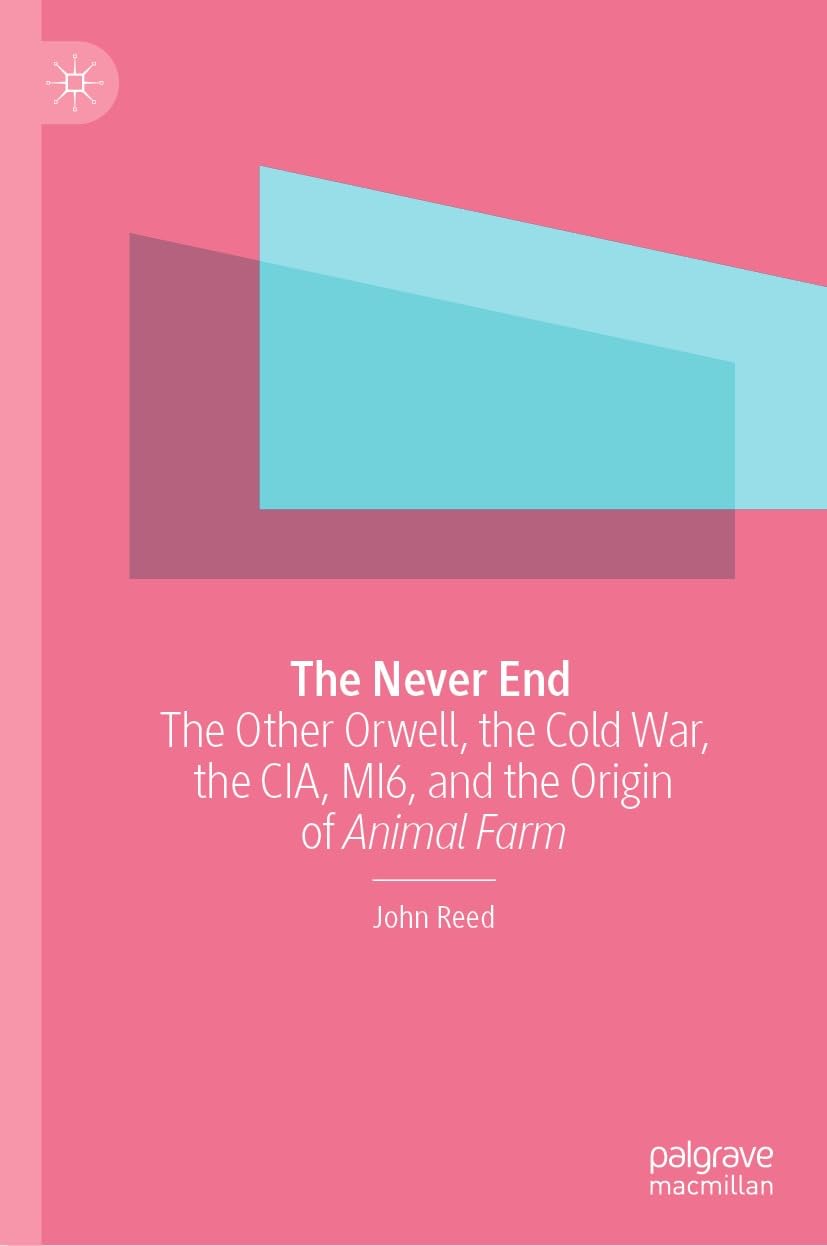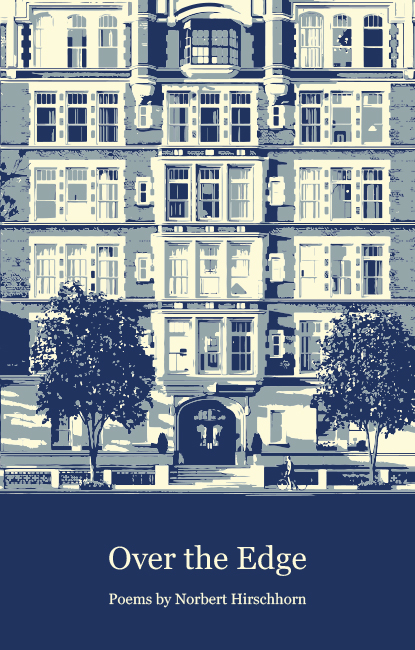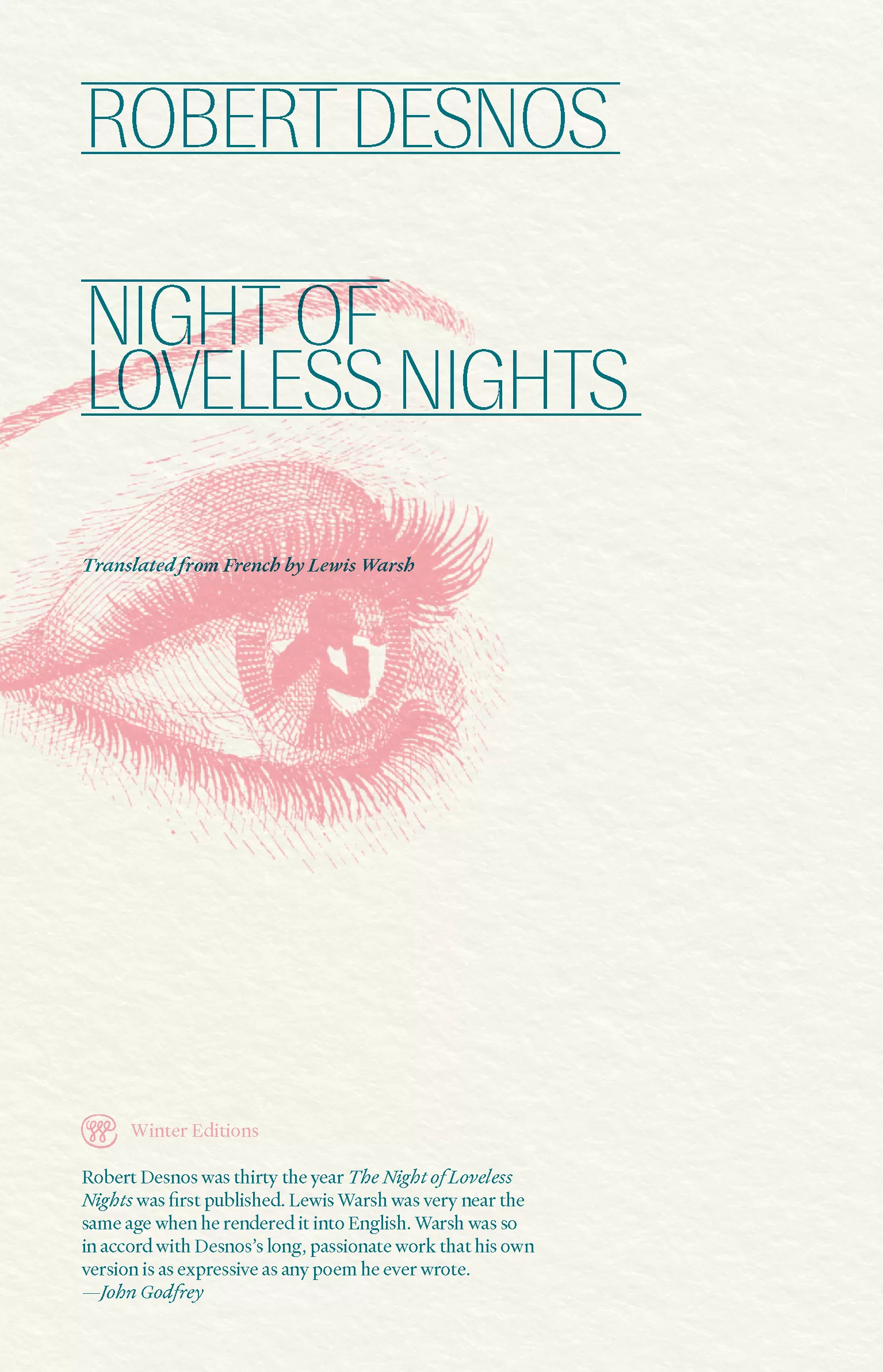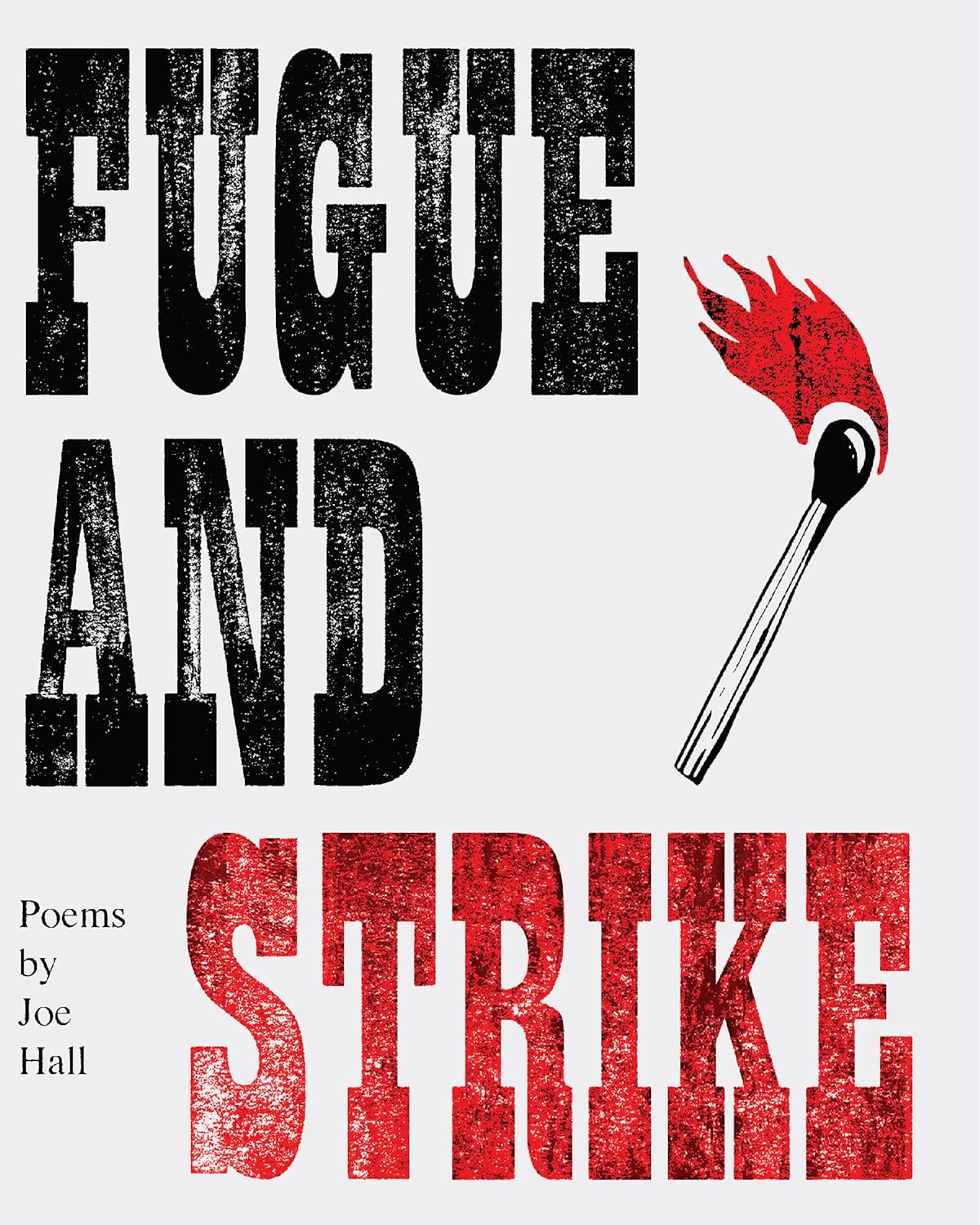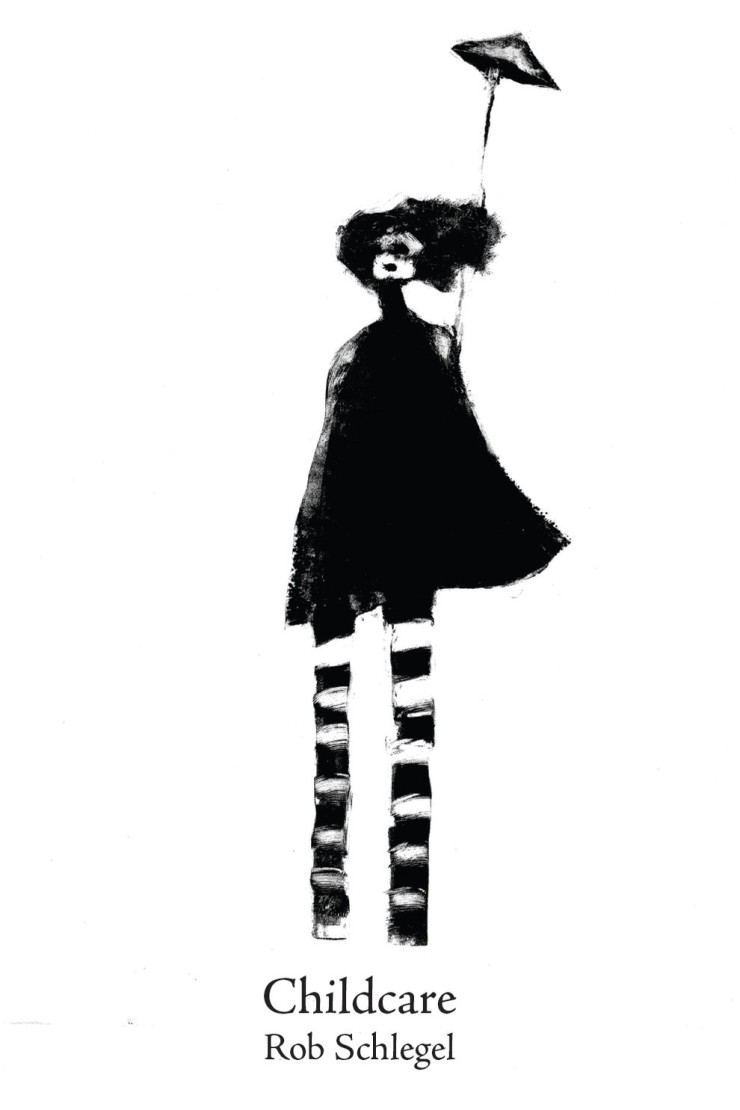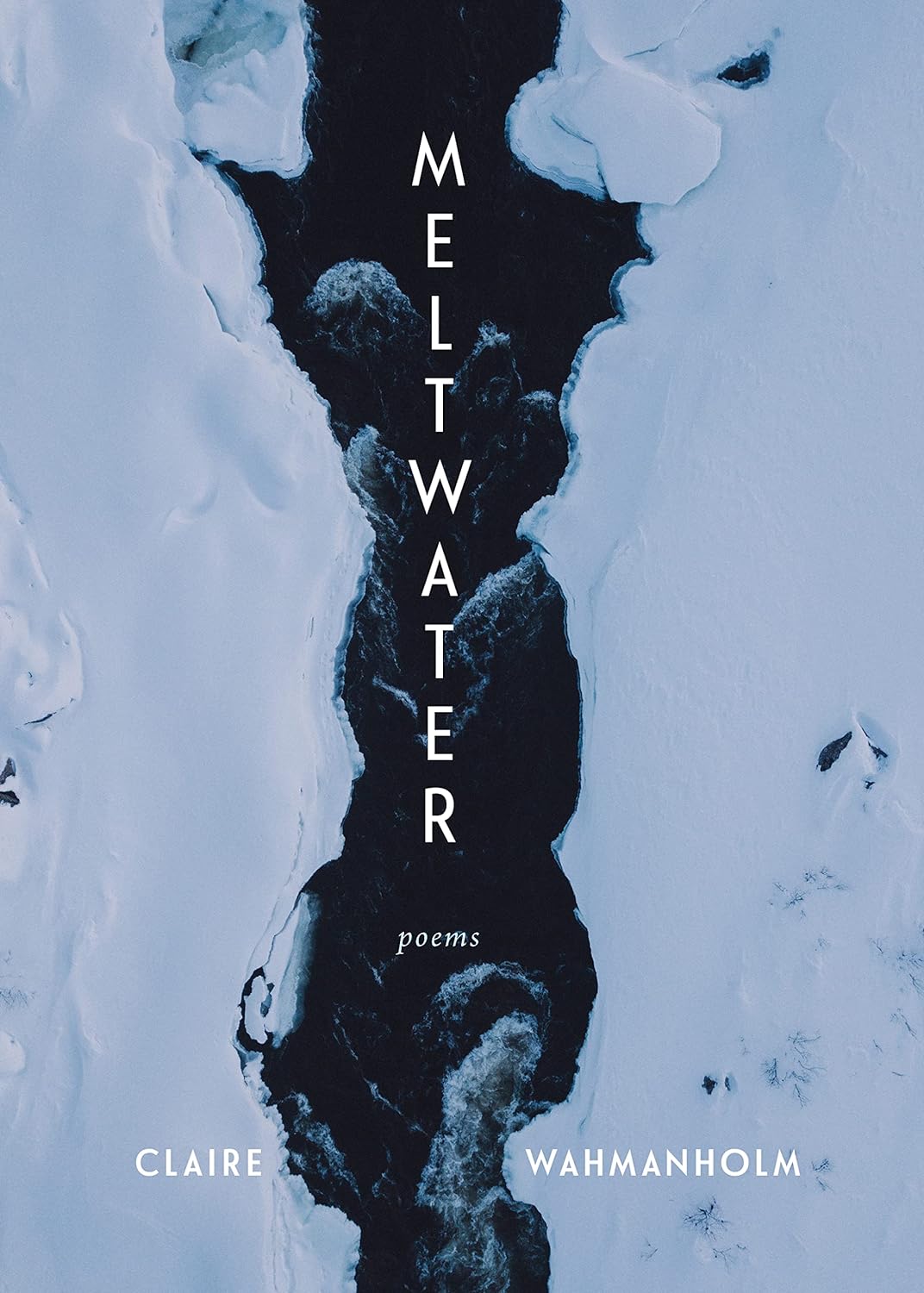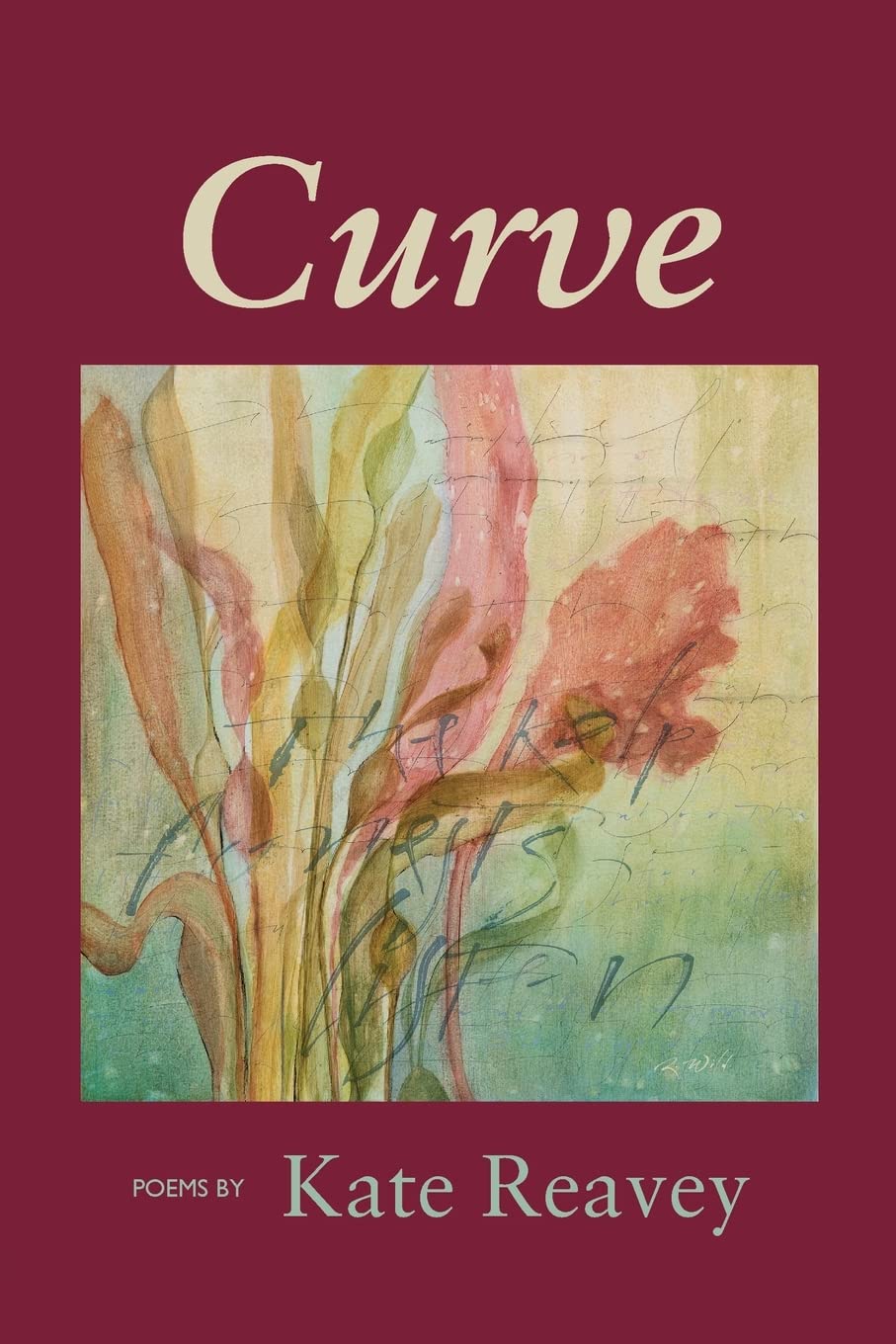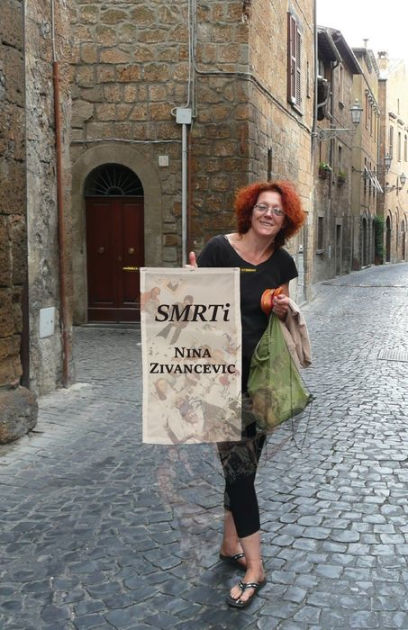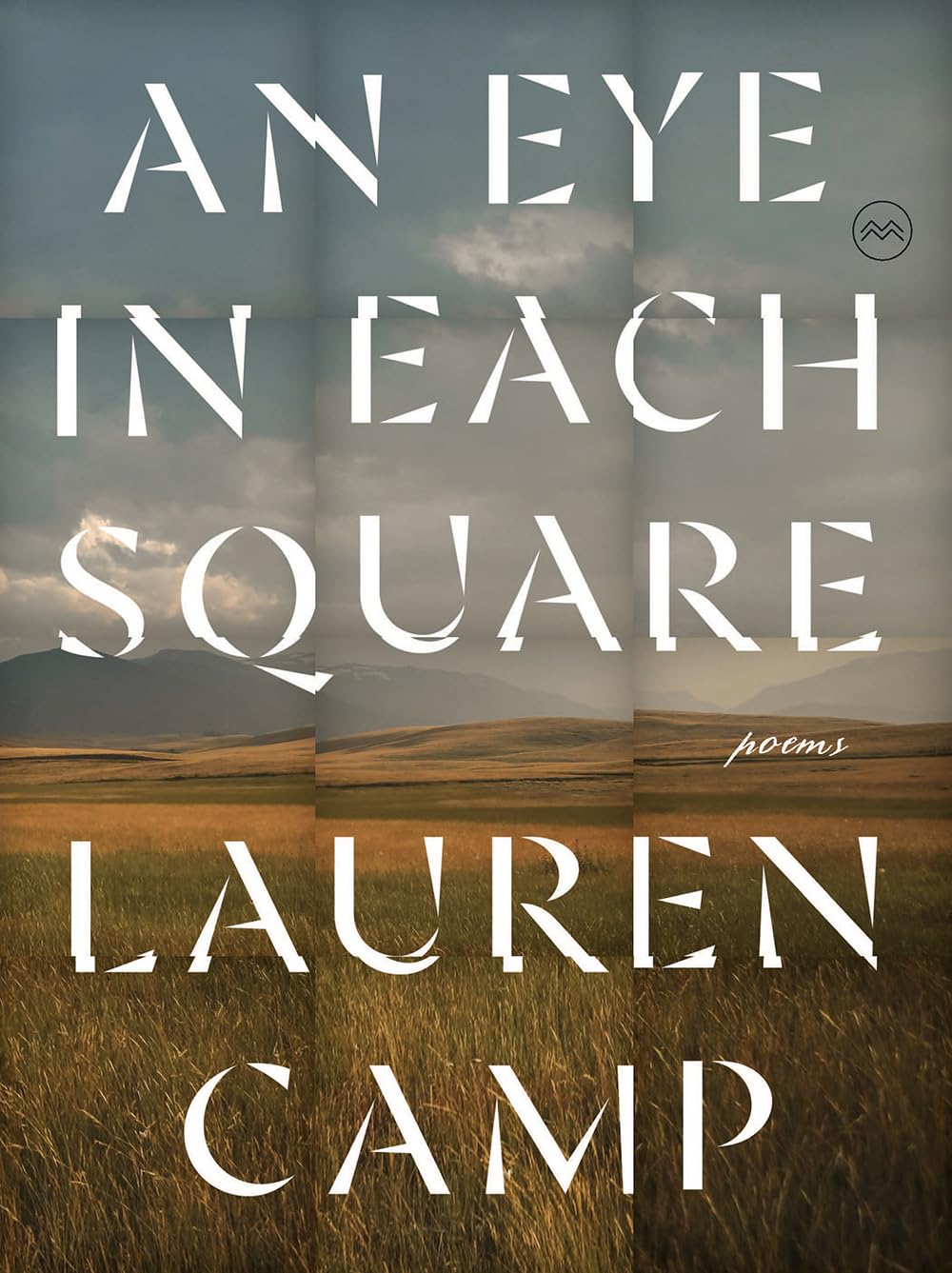The Other Orwell, the Cold War, the CIA, MI6, and the Origin of Animal Farm
John Reed
Palgrave Macmillan ($119.99)
“Orwell has come to an end,” John Reed tells us. He’s earned a say in the matter: His newest book, The Never End, collects twenty years of essays, long form pieces, and interviews that parse the complicated history and legacy of George Orwell’s 1945 novella Animal Farm.
Orwell’s classic allegory has been a syllabus staple for decades, but its popularity in schools, Reed points out, “is not by chance.” Having made a literary case that “revolution is doomed to fail,” Animal Farm became the “greatest success” of the Information Research Department of the British Foreign Office (eventually to become MI6) and soon became a player in the CIA’s “cultural ‘Cold War’” with Russia, “the terminology of which was Orwell’s own coinage.”
Reed maintains that Orwell would have pushed back against readings of Animal Farm as broadly anti-revolutionary; in his refutations to similar interpretations of 1984, Orwell implied that his message was more anti-Stalinist than anything else. “Regardless,” Reed writes, “Orwell died, and the CIA and British Secret Service proceeded unimpeded, and the bargain sealed, alas, was a Faustian one … The Animal Farm of the CIA doesn’t apply to just the Russian revolution; it’s a parable, a ‘timeless’ parable, a ‘universal’ parable, about the dangers of systemic change.” Translations, global distribution, and film and television adaptations, funded by the IRD and CIA (and its Congress for Cultural Freedom, which deeply influenced “the course of US art and literature in the twentieth century”), spread the story of Napoleon, Old Major, and Snowball across much of the world. Talk about culture war: Reed calls Animal Farm “an educational missile aimed at any healthy impulse toward reform.”
Orwell died in 1950, just two years after Animal Farm was published, and his death at forty-six left a mine of questions for critics like Reed to consider—in part because propagandistic uses of Orwell’s writing began while Orwell was still alive and to some extent with his cooperation. Orwell produced enemies lists with the names of 135 “fellow travelers” for the IRD; “replete with vindictive inclusions,” the lists were part of ”a long and active exchange” with Orwell’s friend Celia Kirwan, an employee at the IRD (and a woman to whom he once proposed). Some of these names are still classified today—“one can surmise sensitive or embarrassing contents.”
As far as we know, the lists didn’t have serious consequences, but to Reed, that isn’t enough to let Orwell off the hook: “you took aim, but you might have missed.” In his diaries, Orwell wrote, “All propaganda is lies, even when one is telling the truth. I don’t think this matters, so long as one knows what one is doing, and why.” Reed’s response: “A discerning understanding of propaganda begets accountability.” He has retorts for each kind of Orwell protector, including those who argue times were different: “Isn’t surviving historical context the challenge of literature? None of the 11-year-olds reading Animal Farm are reading it in historical context.”
Certain sections of The Never End focus on Reed’s research about the origins of Animal Farm. Orwell lifted the premise (and quite a bit more) from a Russian short story called “Animal Riot,” written around 1880 by the Russian historian Nikolai Kostomarov—however, his story of farm rebellion, as opposed to Orwell’s, ended in successful overthrow of the humans. Same beats, same referent, different agenda. Reed’s 2015 essay for Harper’s Magazine about the Animal Farm-“Animal Riot” connections comprises this book’s third chapter; in it, Reed makes an impeccable case. Reed also had “Animal Riot” translated into English, and that text is included in this volume. Yet for all the research that went into the Harper’s piece, the response defied his predictions: “It was news, but not heartbreak.” (An interesting aside to the Kostomarov plagiarism thread is that in his original preface to Animal Farm, Orwell does explain how he got the idea for the book—but the story he tells there is “a rehash of Fyodor Dostoyevsky’s instigating event in Crime and Punishment.”)
The “Animal Riot” analysis is where Reed’s own fiction enters the conversation. During the weeks following 9/11, Reed wrote his novel Snowball’s Chance (Roof Books, 2002), an unofficial sequel in which Snowball, Animal Farm’s Trotskyish pig, returns to the farm and introduces capitalism to the animals in post-Soviet fashion; the fallout satirically mirrors the U.S. War on Terror. Reed’s novel came under legal threat from Orwell’s estate for copyright infringement, but U.S. parody law protected it. (It was also criticized publicly by Christopher Hitchens, who called Reed a ”Bin Ladenist.”) Revisiting Snowball’s Chance allows Reed to include a few critical essays about contemporary culture and politics that offer a break from Orwell studies without deviating too much off topic.
As The Never End covers twenty years of work, we get a variety of tones. In a 2011 essay originally published in The Rumpus, the invective hits a peak:
Popular entertainment is a helpless, writhing, mega-maggot of selfish desire … Culture-at-large presumes that writing is torture, art is suffering, and artists are monstrous … in the service of denigrating creative living and creative thinking, which is the single alternative to a life of stultifying obedience.
By the time of the writing of The Never End, at least as regards Orwell, Reed’s mood is a little different. The Cold War is long over, and with it, the “paradigm” that helped Animal Farm proliferate. Reed points out that the nature of our warfare, both material and cultural, has changed, as has the nature of national borders; when Orwell’s fiction is applied to U.S.-China tensions, for example, “the corollaries are curiously hollow.” Reed argues that our newly assigned foe is not a Cold War-esque antagonist but a protracted symbol of “the America of the erstwhile confrontation … that is as absent as its imagined nemesis.”
Of course, Orwell’s work is a trove of such imperfect comparisons, and there is plenty more to be discovered that can shake up the picture, although “the tasks are infinite, and decrease in impact and importance into infinite pointlessness.” And if someone is to continue the project? Reed knows better than to be expectant: “People no longer doubt, and quite possibly don’t care, that George was the author of such toxic hypocrisy. Does that say as much about ourselves as it does about Orwell? It’s so easy to sympathize: he sold his soul.” At this point, Orwell’s reputation is unlikely to change, because the reasons he is admired sustain themselves:
Why are we still fond of Orwell? Maybe it’s that he was such a genuinely sincere propagandist. Maybe, where we once loved him despite the compact he made with the devil, we are now denizens of so broken an epoch that we love him because of it.
Conducted out of love or not, further research into Orwell the man will probably only go so far toward altering attitudes toward Orwell the symbol. For those interested in both, though, The Never End is essential, even as it asserts its own expiration. Reed writes in the final pages: “He is everywhere and nowhere to the degree that there is no Orwell—only a cascading attrition of citations, half-lies, and history receded, gone on the horizon.” A dim prognosis, but, in the spirit of George, a truthful one.
Click below to purchase this book through Bookshop and support your local independent bookstore:
Rain Taxi Online Edition Spring 2024| © Rain Taxi, Inc. 2024

